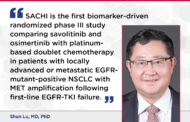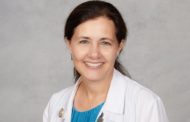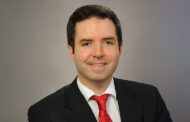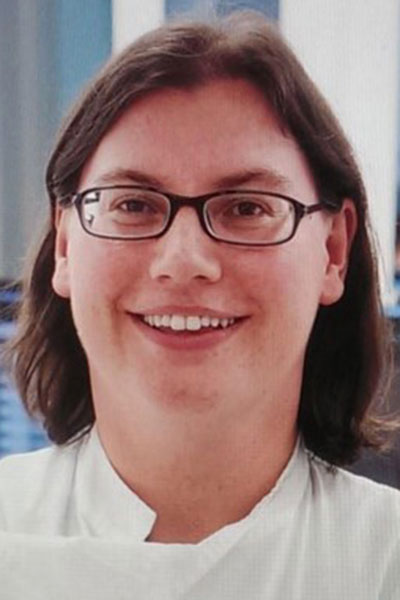
It is not easy to be an individual with lung cancer or to be a loved one or caregiver of a person with lung cancer. The looming threat of disease, discomfort, and death is too often compounded by a lack of information and lack of timely, useful communication from the care team.
“We know that there are multiple barriers to lung cancer care,” said Anne-Marie Baird, PhD, President of Lung Cancer Europe, Dublin, Ireland. “People on the care team can take it for granted that if something is talked about with the patient or their caregiver, it is understood. And that’s not always the reality. There is a key barrier around improving communication between healthcare teams, patients, and caregivers as well as fast-tracking access to services.”
Dr. Baird will present “Barriers to Lung Cancer Care in Europe” during the mini oral abstract session “Barriers and Benefits,” which will take place from 16:15-17:15 SGT on Sunday, September 10, in room 405C. The data she will share comes from a recent survey of people with lung cancer designed to assess current barriers to improved care.
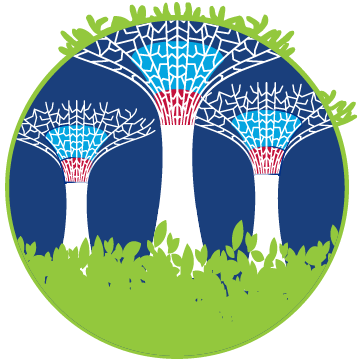
Mini Oral Abstract 07: Barriers and Benefits
16:15-17:15 SGT, Sunday, September 10, Room 405C
“It is very possible that if you ask healthcare teams, many will say they do give enough information,” Dr. Baird said. “But from a patient perspective, there are many issues around communication. In particular, people could do with more information around clinical trials, about the psychosocial issues, and about advanced care planning. One of the big things that came out of our study was the need to provide information on how people can self-manage lung cancer side effects as well as the side effects of treatment. There are communication issues across all parts of the care pathway from diagnosis through treatment and support.”
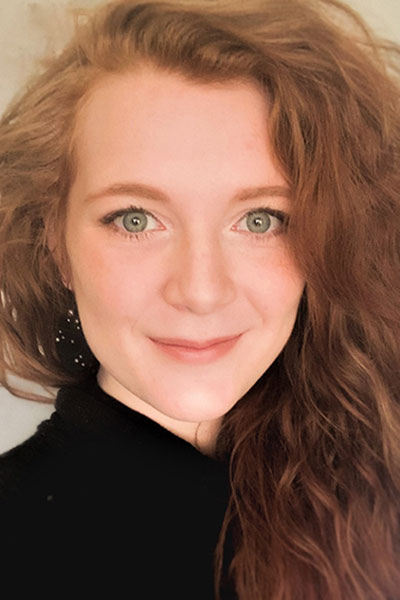
Lack of communication and information is not a uniquely European barrier. Patients from around the world contact the US-based patient advocacy group Go2 Foundation for Lung Cancer, said the organization’s Science and Research Specialist Brittney Nichols, MPH, BSN-RN. She will present “Analyzing and Understanding the Unmet Needs of Lung Cancer Patients and Their Loved Ones.”
The number one need is information on clinical trials.
“The barriers that come up include affording key therapeutic agents, particularly targeted therapies, in different nations,” she said. “And very often the most important barrier we discuss is clinical trial availability. Different countries have very different, sometimes very unequal, access to clinical trials.
“Depending on where they live, there may not be a lot of therapeutic options available,” Ms. Nichols continued. “Or it could be that they have exhausted the locally available options, and they’re trying to figure out the next step. We try to help guide people to the local resources, to help them be more aware of what those resources are so they can discuss them with their providers.”
Clinical trial information is relatively easy to come by in some countries. In the US, for example, clinicaltrials.gov is the go-to resource for trials that are currently enrolling patients. And GO2’s LungMATCH program is one of several US-based clinical trial and treatment matching programs. But not all countries have a central clinical trials database.
“It is important to look at the global state of lung cancer care—not just what is going on in the United States, or China, or in any specific country—as a global problem,” Ms. Nichols said. “Looking at the global needs of the community calls attention to ways we can work together to create resources that can transcend some of the barriers to care.”
Six additional presentations will explore other barriers and opportunities. Topics include fear and anxiety as reported by Canadian lung cancer patients, ways media training can boost the effectiveness of lung cancer advocates, a global look at patient involvement in decision-making, a novel physical activity program for lung cancer patients, preliminary findings from an international survey of unmet needs of family caregivers, and the design and implementation of a digital care pathway. “This session will give attendees novel and unique insights on the real-world, lived experiences of people with lung cancer and the difficulties that can be overlooked by healthcare providers and teams,” Dr. Baird said. “Being forearmed and knowing what could be coming along the care pathway can make a huge difference in lung cancer care.”


